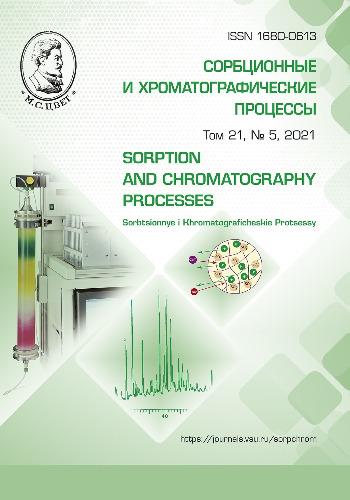A comprehensive assessment of the quality of beer after microfiltration by means of ceramic membranes
Abstract
The record of the modern brewing industry shows that the role of membrane technologies in the brewing process is constantly growing. While 20-30 years ago membrane processes were only used for water treatment, today they are an alternative to precoating and PVPP filtration, as well as to pasteurization. Membrane technologies in brewing, particularly when used in the microfiltration process, help to manufacture products of a much higher quality. As opposed to multistage precoat filtration, PVPP stabilization, sterilization, and pasteurization, membrane processing does not alter the initial taste of beer, is much faster, and more energy efficient. Furthermore, it significantly enhances the microbiological stability and helps to make the manufacturing process and the technological equipment cleaner.
A new generation of ceramic membranes has made it possible to ensure the stability of the quality of the product and conduct membrane processing with the minimum absorption of extractive substances, microorganisms, proteins, etc. The degree of absorption of the said components is the limiting factor when determining the molecular weight cut-off, providing for the required colloidal and biological stability on the one hand, and stable quality on the other.
The purpose of our study was to assess the possibility of beer microfiltration with ceramic membranes in order to boost its biological and colloidal stability. We also aimed to perform a comprehensive assessment of the quality of beer produced this way as compared to traditional technologies, particularly precoat filtration and heat treatment (pasteurization). In our study, we analysed the amino acid composition of various samples of beer: unpasteurized unfiltered beer with 15-day shelf life served at beer restaurants; unpasteurized filtered beer and pasteurized filtered beer with the shelf life of up to 3 months manufactured at a large brewery using traditional precoat filtration, PVPP stabilization and pasteurization techniques; beer clarified on a ceramic membrane with the molecular weight cut-off of 0.8 μm. The article presents the physicochemical parameters of beer clarified on ceramic membranes with pore sizes of 0.14, 0.20, 0.30, 0.45, 0.80, and 1.4 μm, and the predicted stability of beer clarified on a ceramic membrane with the pore size of 0.45 μm.
Downloads
References
Antipov S.T., Kljuchnikov A.I. Intensifikacija processov pererabotki zhidkih pishhevyh sred membrannymi metodami. Voronezh. gos. un-t inzh. tehnol. Voronezh. VGUIT. 2017. 304 p.
Aredes R.S., Peixoto F.C., Sphaier L.A., Marques F.F., Food Chemistry, 2021, Vol. 34415, 128572. DOI https://10.1016/j.foodchem.2020.128572
Bauwens J., Van Opstaele F., Eggermont L., Weiland F. et al., Journal of the Institute of Brewing, 2021, Vol. 127, Issue 4, pp. 385-405. DOI https://10.1002/jib.664
Charcosset C., Food Engineering Reviews, 2021, Vol. 13, Is. 2, рр. 322-343. DOI https://10.1007/s12393-020-09262-9
Cimini A., De Francesco G., Perretti G., LWT – Food Science and Technology, 2017, Vol. 86, рр. 55-61. DOI: https://10.1016/j.lwt.2017.07.033
Cimini A., Moresi M., Journal of Food Engineering, 2016, Vol. 173, рр. 132-142. DOI: https://10.1016/j.jfoodeng.2015.11.003
Cimini A., Moresi M., LWT – Food Sci-ence and Technology, 2018, Vol. 90, рр. 132-137. DOI: https://10.1016/j.lwt.2017.12.008
Díaz-Liñán M.C., Lucena R., Cárdenas S., López-Lorente A.I., Journal of Chromatography A, 2021, Vol. 165116, Article number 462297. DOI https://10.1016/j.chroma.2021.462297
Hamper B.C., Viriyasiri N., Boland A., Driesner K. et al., LC-GC North America, 2021, Vol. 39, Is. 7, pp. 329-334.
Hennemann M., Gastl M., Becker T., Separation and Purification Technology, 2021, No 2721, Article number 118966. DOI https://10.1016/j.seppur.2021.118966
Kljuchnikov A.I., Poljanskij K.K., Abonosimov O.A., Vestnik TGU, 2015, Vol. 20, Is. 6, pp. 1790-1794.
Klyuchnikov A.I., Ovsyannikov V.Yu., Lobacheva N.N., Berestovoy A.A. et al., IOP Conference Series: Earth and Envi-ronmental Science, 2020, Vol. 421, Is. 2, pp. 22006. https://10.1088/1755-1315/421/2/022006.
Kupetz M., Rott M., Kleinlein K., Gastl M. et al., Journal of the Institute of Brewing, 2018, Vol. 124, Is. 4, pp. 450-456. DOI https://10.1002/jib.529
Ramsey I., Yang Q., Fisk I., Ayed C., Ford R., Food Chemistry, 2021, Vol. 1030, Article No 100121. DOI https://10.1016/j.fochx.2021.100121
Varga Á., Gáspár I., Juhász R., Ladányi M. et al., Journal of Food Process Engineering, 2019, Vol. 42, Is. 1, Article number e12941. DOI https://10.1111/jfpe.12941
Varga Á., Ladányi M., Márki E., Desalination and Water Treatment, 2020, Vol. 192, pp. 382-391. DOI https://10.5004/dwt.2020.25460







